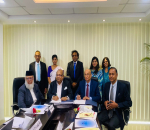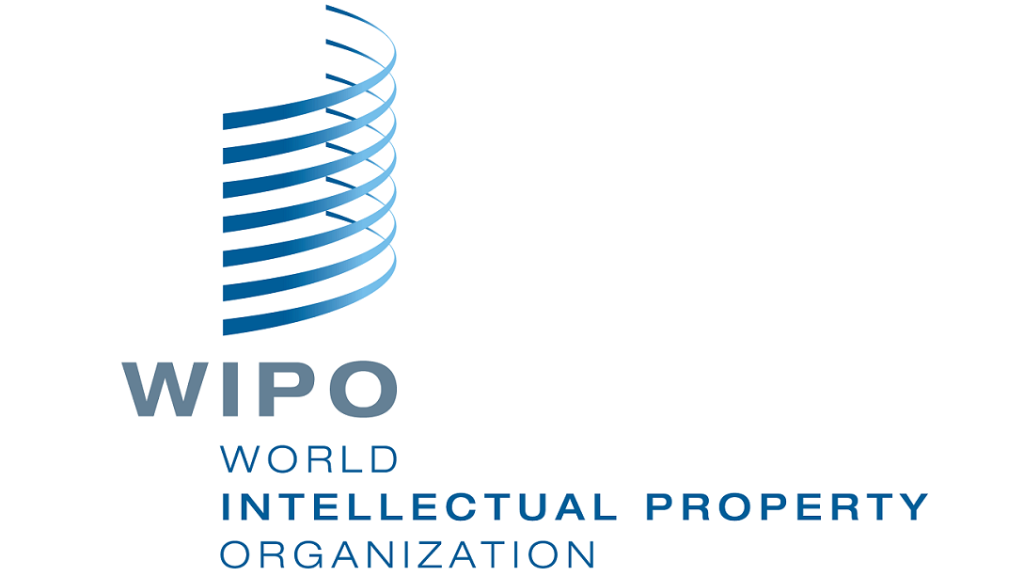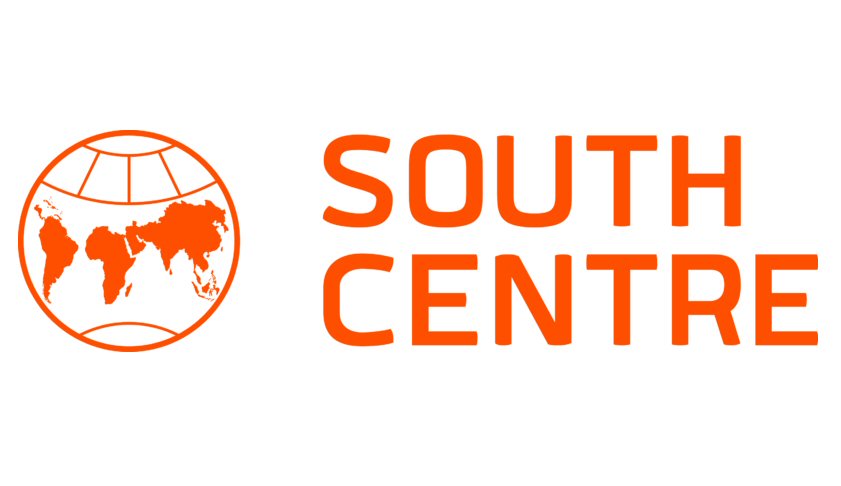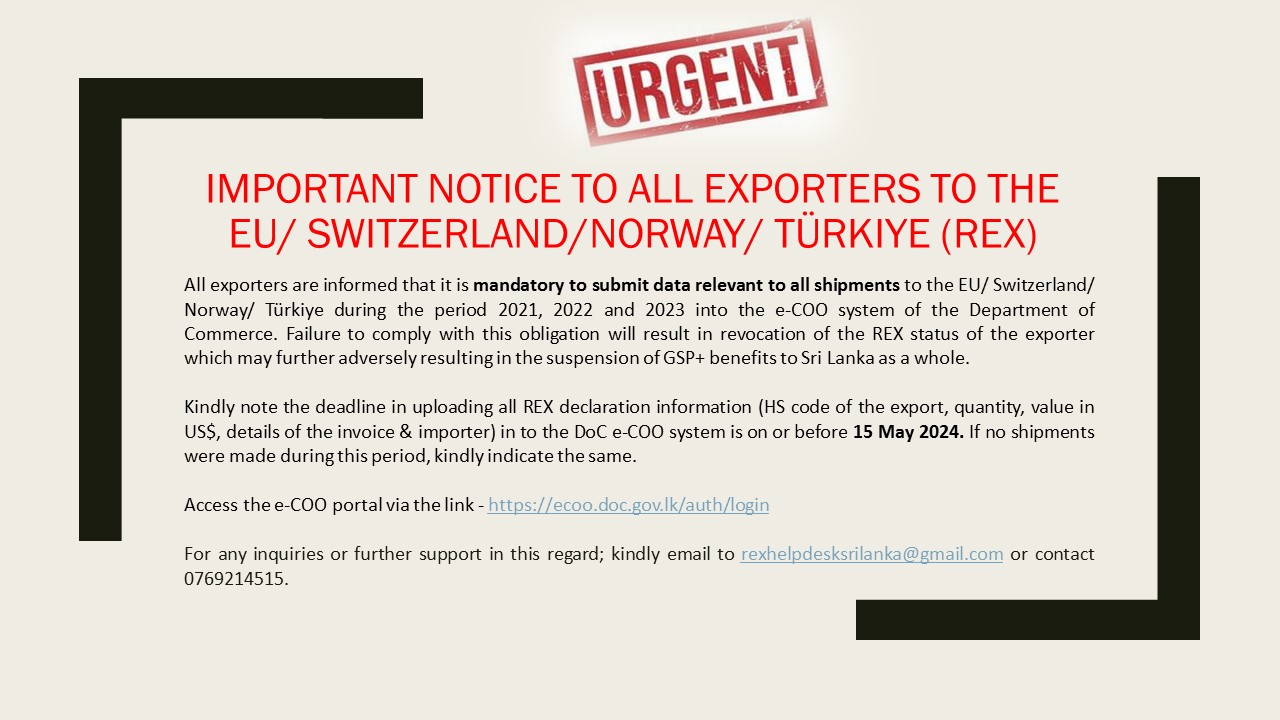Indo - Sri Lanka Free Trade Agreement (ISFTA)
The Indo - Sri Lanka Free Trade Agreement (ISFTA), which was signed on 28th December 1998 and entered into force with effect from 1 March 2000, aims at promoting economic linkages between India and Sri Lanka through enhancement of bilateral trade and investment. The Agreement covers only trade in goods and requires the two countries to offer market access for each other's exports on duty free basis and concessionary tariffs. The ISFTA does not provide for elimination of non-tariff barriers.
Sri Lanka's exports to India increased from US$ 164.51 Mn during the first seven months of 2009 to US$ 239.2 Mn during the corresponding period of 2010 registering a 45.4% growth. This increase was mainly due to a significant increase in exports such as spices (cloves, nutmeg, mace, pepper etc.), electrical machinery and parts, copper products, sheet rubber, pulp, confectionery & bakery products, tyres & tubes, glass products, wooden products, garments, apparel & clothing accessories, furniture, processed fruits & fruit juices, jewellery items etc. in the first seven months of 2010, when compared to the corresponding period of 2009. However, exports of certain products such as tea, ceramic products, cinnamon, gems, boilers & machinery parts, processed food, mineral sand, activated carbon etc. have recorded a decrease during January to July in 2010 compared to 2009.
Products Diversification under the ISFTA
While there has been a reduction in major exports such as vegetable oil, primary copper, margarine, marbles and pepper, a variety of other products have gained market access to India. They include insulated wires and cables, poultry feeds, pneumatic tyres, ceramics, apparel, furniture, air conditioners & coolers, measuring and checking instruments, glass bottles, processed meat products, Medium density Fiber (MDF) Boards, rubber gloves, thermal papers, tiles, stones and marbles, boilers & machinery parts, iron & steel articles, panel boards & enclosures, sacks and bags etc.
Pakistan - Sri Lanka Free Trade Agreement (PSFTA)
The Pakistan - Sri Lanka Free Trade Agreement (PSFTA), which came into force on 12th June 2005, has seen a substantial improvement in trade between the two countries, with the value of total trade between the two countries, which stood at US$ 147.1 Mn in 2004, increasing to US$ 370.38 Mn in 2015. Sri Lanka's exports which was at US$ 39.2 Mn in 2004 has increased to US$ 73.10 Mn in 2015, making Pakistan Sri Lanka's second largest trading partner in the SAARC region after India.
Sri Lanka's main exports to Pakistan include Pepper, Beedi leaves, Betel leaves, Coconut shell pieces, Natural rubber, Coconuts & cashew nuts in fresh or dried, Wood & articles of wood, Edible vegetables, Tea. A range of new products have also penetrated into the Pakistan market after the implementation of the PSFTA, including fresh pineapple, sports goods, tamarind with seeds, edible oil, porcelain tableware & kitchenware, ceramic tiles, furniture, electrical switches and sockets, herbal cosmetic products and plastic articles, paints, glass paintings, leather products, frozen fish, prawns, lobsters, crabs, cut flowers and foliage, gems & Jewellery and aquarium fish.
Both Countries have completed its phasing out commitment and now have the duty free market access for more than 4500 products in both countries.







 United Nations Conference on Trade and Development
United Nations Conference on Trade and Development SAARC Secretariat
SAARC Secretariat International
International


